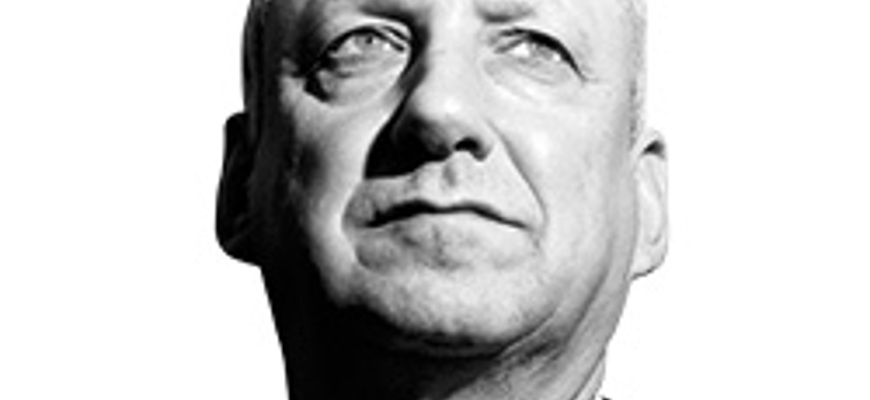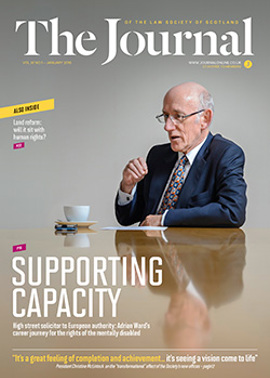The rocky road to good intentions

The great advantage of being human is that we can employ rational thought and resolve to change our circumstances. (Mariella Frostrup)
It being that time of year, my original (or rather, tremendously unoriginal) thought was to write a piece on new year resolutions, full of wisdom about strategy, finance, business development and other delights from the giant Celebrations tin of modern law firm management.
And then I thought, “Nah.” The only material point about new year resolutions is that 99% of them do not survive January. One of the things that distinguishes us from other animals (apart from not having to be filmed by David Attenborough) is that we have an appreciation of our imperfections, and the desire to improve. You might see a lion searching for a dozy wildebeest, but never on a personal quest to be a better lion. Yet it is striking how seldom human thought translates into action.
My friend Paul Gilbert, the chief executive of LBC Wise Counsel and one of the most impressive people I know, has a favourite party piece when addressing audiences about change. “Fold your arms please,” he asks them, and when they have done it, he asks, “Now, fold them the other way round.” Try this at home. See how awkward and uncomfortable it feels. His point is that if folding our arms differently is so difficult, how much harder is it to achieve enduring behavioural change.
Why? It can’t be lack of intelligence. The world is full of clever people who choose not to act in clever ways. This applies just as much to our personal as our business lives: ask any manufacturer of alcohol, tobacco or chocolate. In business, we repeat damaging behaviour over and over, spending years enduring the negative consequences of impulsiveness, procrastination, arrogance, timidity, selfishness, or succumbing to the irresistible charms of the comfortable and familiar, even though we know they are a route to being average at best.
Beware of the dogs
I think the most compelling reason is that behavioural change is a long-term process, unsuited to a short-term world. Instant gratification is now normal. But permanent change to the way we think and act is a long haul, one on which the temptations to give up are ever present. The pain is immediately obvious, but the benefits are over the horizon. I had the good luck over 20 years ago to meet William McIlvanney, the wonderful novelist whose passing has just been widely mourned. I asked him how he managed to keep focus during the long process of crafting his work.
He agreed it was hard, but then added in a phrase I have never forgotten: “If you’re on a journey to somewhere important, you can’t be distracted by every dog that barks at you in the street.” We all recognise these dogs: the emails, the calls, the deadlines real or imagined, the personal pressures. If we are to make the changes we want, we need to question constantly – “Is what I am doing actually important? Is it going to help me achieve my objectives? Or am I just spending my time reacting to whoever barks loudest?”
To say the road to change is rocky is very different to believing it impassable. The first step is to recognise that success depends on sustained determination. Stickability is often underrated compared to intellect and skill, but it is the one thing that successful people in every walk of life have in common. Think of Churchill’s motto, “KBO”. Keep Buggering On. His ability to KBO, when many about him were waning, was a greater factor in his ultimate success than his gift for oratory, or his strategic ability, which failed him more than once. It is no accident that the word “resolution” means both bringing to a conclusion and the doggedness to make it happen. Look at the great law firm success stories and you see that at their heart are people able to tough things out over the long term and inspire that quality in others.
How to keep resolutions
First, make commitments which will stretch, but not break. Change is best achieved incrementally, each success increasing motivation for the next step. Secondly, don’t fly solo. If you make a commitment public, you are much more likely to follow through. By “public”, I don’t mean tell the whole world. Confide in someone you trust, a colleague, friend or family member, who has a genuine interest in you. Ask them to support, mentor and, where necessary, challenge. Thirdly, avoid the trap lawyers are particularly drawn to, of excessive self-criticism. Being honest with yourself means taking proper pride in your achievements, not just beating yourself up for shortcomings real or imagined.
Whatever your road this year, I wish you good health, good fortune and sustained success.
In this issue
- Cutting the RoS bouncebacks
- Landlords still?
- Split parenting: fewer tears
- Brussels briefing
- Reading for pleasure
- Opinion: Frankie McCarthy
- Book reviews
- Profile
- President's column
- DPA: one year on
- People on the move
- Team building
- Ward's words
- The end of deeds of conditions?
- Human rights and land reform: unanswered questions
- Aye to Brussels
- Appeals: the new landscape
- The 2015 Act: some more thoughts
- Three months in planning
- Buy-to-let: no longer a good bet?
- Scottish Solicitors Discipline Tribunal
- What is ScotLIS?
- Energy input
- Law firms help students' business skills
- Paralegal pointers
- Law reform roundup
- CML Handbook amended
- Service eases stress of separating parents
- Appreciation: Tahir Elçi
- The rocky road to good intentions
- Risk review 2015, risk forecast 2016
- Ask Ash
- What's in store for SYLA in 2016?
- Reflections from the Commission






